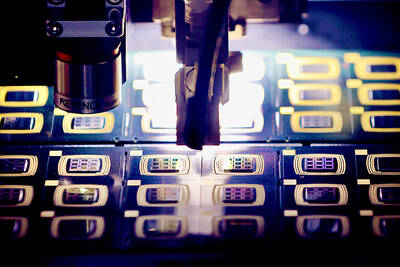Time Warner Inc, the world's largest media company, must share control its Superman copyright with the heirs of the comic hero's creator, Jerome Siegel, a US federal judge ruled.
Siegel's wife, Joanne, and their daughter, Laura Larson, won back his half of the copyright to Superman material.
Jerome Siegel and his creative partner, Joseph Shuster, granted the rights to DC Comics in 1938, a contract that expired in 1999, said US District Judge Stephen Larson in Riverside, California.
"After 70 years, Jerome Siegel's heirs regain what he granted so long ago -- the copyright in the Superman material that was published in Action Comics," Larson wrote in his March 26 order.
The victory was "no small feat indeed," Larson wrote.
Joanne Siegel's and Laura Larson's share of the profits must still be determined at trial, according to the order.
Marc Toberoff, the Siegels' lawyer, said Jerome Siegel fought for decades, without success, to share in the profits from the rights to his Superman character, which he sold with Shuster for US$130. Jerome Siegel died in 1996.
"Joanne Siegel has courageously carried the torch in this matter for decades, and this is probably the first good news she has received regarding Superman in 70 years," Toberoff said in an interview.
Time Warner spokesmen Edward Adler and Keith Cocozza didn't immediately return phone calls and e-mails seeking comment after business hours.

AI SERVER DEMAND: ‘Overall industry demand continues to outpace supply and we are expanding capacity to meet it,’ the company’s chief executive officer said Hon Hai Precision Industry Co (鴻海精密) yesterday reported that net profit last quarter rose 27 percent from the same quarter last year on the back of demand for cloud services and high-performance computing products. Net profit surged to NT$44.36 billion (US$1.48 billion) from NT$35.04 billion a year earlier. On a quarterly basis, net profit grew 5 percent from NT$42.1 billion. Earnings per share expanded to NT$3.19 from NT$2.53 a year earlier and NT$3.03 in the first quarter. However, a sharp appreciation of the New Taiwan dollar since early May has weighed on the company’s performance, Hon Hai chief financial officer David Huang (黃德才)

The Taiwan Automation Intelligence and Robot Show, which is to be held from Wednesday to Saturday at the Taipei Nangang Exhibition Center, would showcase the latest in artificial intelligence (AI)-driven robotics and automation technologies, the organizer said yesterday. The event would highlight applications in smart manufacturing, as well as information and communications technology, the Taiwan Automation Intelligence and Robotics Association said. More than 1,000 companies are to display innovations in semiconductors, electromechanics, industrial automation and intelligent manufacturing, it said in a news release. Visitors can explore automated guided vehicles, 3D machine vision systems and AI-powered applications at the show, along

FORECAST: The greater computing power needed for emerging AI applications has driven higher demand for advanced semiconductors worldwide, TSMC said The government-supported Industrial Technology Research Institute (ITRI) has raised its forecast for this year’s growth in the output value of Taiwan’s semiconductor industry to above 22 percent on strong global demand for artificial intelligence (AI) applications. In its latest IEK Current Quarterly Model report, the institute said the local semiconductor industry would have output of NT$6.5 trillion (US$216.6 billion) this year, up 22.2 percent from a year earlier, an upward revision from a 19.1 percent increase estimate made in May. The strong showing of the local semiconductor industry largely reflected the stronger-than-expected performance of the integrated circuit (IC) manufacturing segment,

COLLABORATION: Softbank would supply manufacturing gear to the factory, and a joint venture would make AI data center equipment, Young Liu said Hon Hai Precision Industry Co (鴻海精密) would operate a US factory owned by Softbank Group Corp, setting up what is in the running to be the first manufacturing site in the Japanese company’s US$500 billion Stargate venture with OpenAI and Oracle Corp. Softbank is acquiring Hon Hai’s electric-vehicle plant in Ohio, but the Taiwanese company would continue to run the complex after turning it into an artificial intelligence (AI) server production plant, Hon Hai chairman Young Liu (劉揚偉) said yesterday. Softbank would supply manufacturing gear to the factory, and a joint venture between the two companies would make AI data